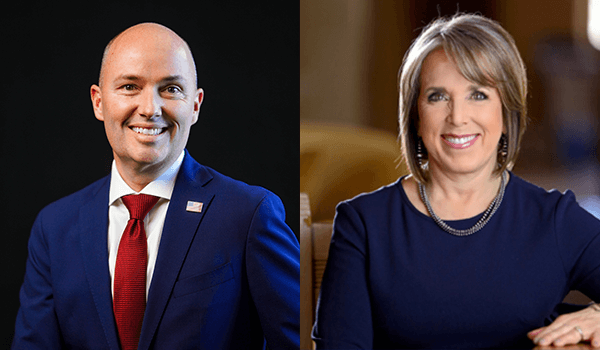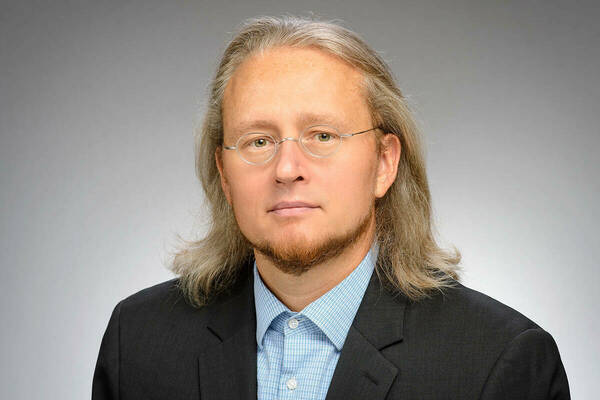Boards of directors and the media generally ‘get it right’ in rewarding CEOs based on performance, study shows
A main focus in corporate governance research is whether boards of directors and the media appropriately reward and sanction CEOs based on their performance.
Evidence shows CEOs vary significantly in their ability to generate positive firm results. While some revitalize underperforming companies, others assume the reins of successful companies only to lead them to failure.
Prior research provides a pessimistic view of boards of directors, portraying them as inefficient and unable to monitor CEOs. But many of these studies approach the problem in the wrong way, according to new research from the University of Notre Dame. The study takes a broader view of these relationships and asks the question: Do boards generally get it right? The answer, the researchers find, is yes.
“Do Boards and the Media Recognize Quality? An Assessment of CEO Contextual Quality Using Pay, Dismissal, Awards, and Linguistics” is forthcoming in the Academy of Management Journal from Timothy Hubbard, assistant professor of strategic management at Notre Dame’s Mendoza College of Business, along with Cole Short from Pepperdine University.
Boards of directors are responsible for the monitoring, rewarding and sanctioning of CEOs, while the media also plays an important role in corporate governance by distilling and disseminating key information about firms and their leaders.
“We find that boards of directors and the media do accurately reward CEOs based on their performance,” Hubbard said. “Higher-performing CEOs earn more, are dismissed less and receive more CEO media awards.”
The study looks at performance based on the impact the CEO has on the firm within the context of the performance they inherited and the time period in which they ran the firm. After establishing this relationship, it examines the signals that boards and the media may use to ascertain quality.
Using advanced linguistic methods, the researchers show that CEOs differ in the language they use. More specifically, they introduce the idea of CEO unscripted novelty, or how much a CEO deviates from the prepared portion of earnings calls in the unscripted question-and-answer portion.
They looked at CEOs and performance from the S&P 500 using company financials, media reports and earnings calls transcripts and studied CEO pay, dismissal and CEO of the Year awards. They used a separate sample to look at earnings calls and unscripted novelty and used natural language processing as a method to understand the topics CEOs discuss during their calls.
“CEO quality is positively related to unscripted novelty, which positively influences stock market reactions,” Hubbard said.
According to Hubbard, past research in this area has attempted to relate board characteristics, such as the proportion of independent directors or CEO duality, to short-term performance. He points to the study’s broader look at relationships, which he says should re-energize boards and remove some of the pessimism around their role, as well as linguistic signals that can indicate CEO quality.
“Our results should encourage board members to pay attention to the language CEOs are using in their earnings calls to understand motivations and ability based on what they say,” Hubbard said.
The study states, “Appropriate rewards for and sanctions against CEOs are important as CEOs have considerable influence over firm outcomes. Firms and society benefit when CEOs are compensated, awarded and dismissed based on their performance.”
Contact: Timothy Hubbard, 574-631-0802, thubbard@nd.edu
Latest ND NewsWire
- Notre Dame to host summit on AI, faith and human flourishing, introducing new DELTA frameworkThe Institute for Ethics and the Common Good and the Notre Dame Ethics Initiative will host the Notre Dame Summit on AI, Faith and Human Flourishing on the University’s campus from Monday, Sept. 22 through Thursday, Sept. 25. This event will draw together a dynamic, ecumenical group of educators, faith leaders, technologists, journalists, policymakers and young people who believe in the enduring relevance of Christian ethical thought in a world of powerful AI.
- Notre Dame Democracy Initiative hosts bipartisan conversation with Western state governorsTwo Western state governors known to work across the aisle on policy issues such as water, housing and energy will visit the University of Notre Dame for a fireside chat about how Western state pragmatism can serve as a model for the country to overcome polarization.
- In new research, Roy Scranton explores climate change and the limits of human progressIn his most recent book, “Impasse: Climate Change and the Limits of Progress,” Scranton, an associate professor of English, defines the impasse he sees as “not only political and institutional, but cognitive, existential and narrative” and asserts that the only path forward is through embracing what he terms ethical pessimism. “A lot of people confuse pessimism with nihilism, apathy and despair,” Scranton said. “But pessimism is actually about recognizing our limits, letting go of unrealistic goals, finding solidarity in the fact of human suffering and doing what you can now, not in some utopian future.
- Notre Dame MBA launches deferred admission programThe Notre Dame MBA Deferred Admission Program allows candidates with little or no work experience, including college seniors, to secure admission before reaching the recommended three years of work experience to enroll.
- ‘Prebunking’ false election claims may boost trust in electionsIn recent years, democracies worldwide have seen a growing erosion of trust in election outcomes and institutions, driven in part by fears of widespread fraud. New Notre Dame research finds that “prebunking” — providing accurate information before false claims spread — boosts trust in elections more effectively than traditional fact-checking.
- ND experts on the canonization of Carlo AcutisAs the Church awaits the ceremony in St. Peter’s Square, where Pope Leo XIV will formally declare Acutis a saint, University of Notre Dame experts Kathleen Sprows Cummings, Brett Robinson and Timothy O’Malley reflect on his life and his path to sainthood.













